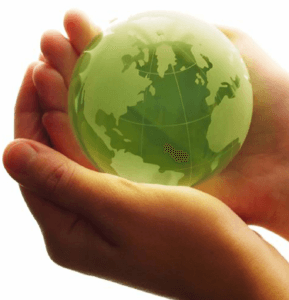
The Global Environment Facility (GEF), under the leadership of the Food and Agriculture Organization of the United Nations (FAO), has approved eight projects totaling nearly $60 million aimed at improving agri-landscape management, developing climate-oriented and biodiversity-friendly livestock farming, and restoring forest, coastal and marine ecosystems.
According to a press release from the FAO, Ukraine will receive $5.4 million in funding to restore and maintain accessible forests and agroforestry systems to ensure climate resilience, enhance ecosystem services, and promote green recovery from the effects of war.
In addition, Tanzania will receive $2.4 million, Congo – $6 million, Bangladesh – $9.2 million, India – $9.9 and $8.8 million, Mexico – $8 million, and Senegal – $8.9 million.
The approved projects will attract about $429 million in co-financing and improve the management of 305,000 hectares of protected areas on land and at sea. They also provide for the restoration of 314,000 hectares of landscapes, improved management of 1.2 million hectares of productive land, and a reduction of 84.5 million tons of greenhouse gas emissions, benefiting more than 1 million people on four continents, the FAO said.
“Our portfolio and partnership with the GEF have become more integrated and effective over the years, allowing us to more effectively implement four areas of improvement, leaving no one behind: improving production, improving nutrition, improving the environment, and improving lives,” said FAO Director-General Qu Dongyu, whose words are quoted in the statement.
The FAO-GEF partnership currently provides 142 countries with funding for agrifood system solutions. The FAO-GEF portfolio for supporting environmental, climate, and biodiversity conservation measures in agriculture and food systems exceeds $2 billion in grant funding and has already attracted more than $14 billion in co-financing.

The Global Environment Facility (GEF) will provide Ukraine with $350,000 in grant assistance as part of the project to improve the situation with hazardous chemicals in the country. According to the GEF’s report released on Tuesday, April 17, the project aims to monitor and assess the real situation throughout Ukraine regarding the quantity and condition of hazardous chemicals, update the national implementation plan for Ukraine’s international obligations on the management of unsuitable chemicals, and ensure the reporting by the Ministry of Ecology and Natural Resources of Ukraine to the Stockholm Convention on Persistent Organic Pollutants.
The GEF noted that on September 5, 2007, Ukraine ratified the Stockholm Convention on Persistent Organic Pollutants, recognizing the need to draw up a national plan for the implementation of its obligations, which should be regularly submitted to the Secretariat of the Convention.
Despite the preparation of such a plan and the beginning of the export of unsuitable chemicals for destruction to EU countries since 2007, Ukraine continues to struggle with a number of problems, among them the impossibility of a reliable assessment of the status of treatment and the quantity of extremely hazardous chemicals available through their storage in unsuitable places and limited access to them.
The GEF said that according to the latest assessment of the treatment of obsolete and banned pesticides in Ukraine, in January 2013, there were 11 tonnes of unsuitable chemicals in the country located on the territory of 1,200 storage facilities.
Under the provisions of the Stockholm Convention, developing countries and countries with transition economies are able to obtain additional funds for the development and updating of the National Implementation Plan. Under such a mechanism, the GEF announced the provision of respective grants at the 5th meeting of the Conference of the Parties. Ukraine has become one of the beneficiaries of the program.